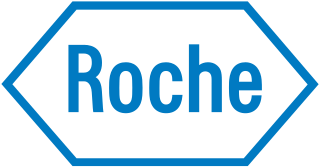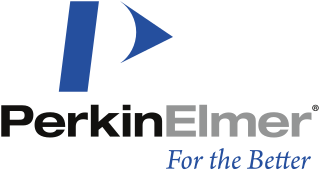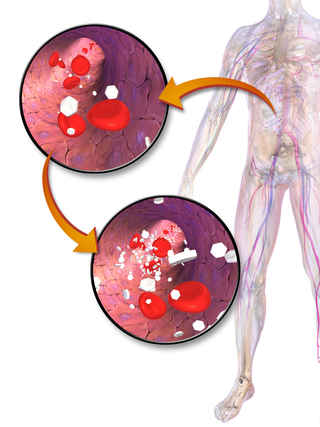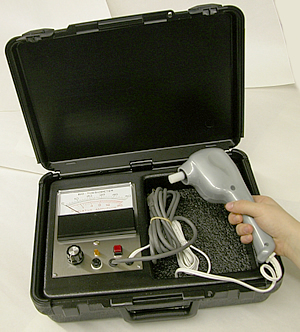
Agilent Technologies, Inc. is a global company headquartered in Santa Clara, California, that provides instruments, software, services, and consumables for laboratories. Agilent was established in 1999 as a spin-off from Hewlett-Packard. The resulting IPO of Agilent stock was the largest in the history of Silicon Valley at the time. From 1999 to 2014, the company produced optics, semiconductors, EDA software and test and measurement equipment for electronics; that division was spun off to form Keysight. Since then, the company has continued to expand into pharmaceutical, diagnostics & clinical, and academia & government (research) markets.
Drugs used in diabetes treat diabetes mellitus by decreasing the glucose level in the blood. With the exception of insulin, most GLP receptor agonists, and pramlintide, all are administered orally and are thus also called oral hypoglycemic agents or oral antihyperglycemic agents. There are different classes of hypoglycemic drugs, and their selection depends on the nature of diabetes, age, and situation of the person, as well as other factors.
Abbott Laboratories is an American multinational medical devices and health care company with headquarters in Abbott Park, Illinois, United States. The company was founded by Chicago physician Wallace Calvin Abbott in 1888 to formulate known drugs; today, it sells medical devices, diagnostics, branded generic medicines and nutritional products. It split off its research-based pharmaceuticals business into AbbVie in 2013.

F. Hoffmann-La Roche AG, commonly known as Roche, is a Swiss multinational healthcare company that operates worldwide under two divisions: Pharmaceuticals and Diagnostics. Its holding company, Roche Holding AG, has shares listed on the SIX Swiss Exchange. The company headquarters are located in Basel. Roche is the fifth-largest pharmaceutical company in the world by revenue and the leading provider of cancer treatments globally.

UBM plc was a British business-to-business (B2B) events organiser headquartered in London, England, before its acquisition by Informa in 2018. It had a long history as a multinational media company. Its main focus was on B2B events, but its principal operations included live media and business-to-business communications, marketing services and data provision, and it principally served the technology, healthcare, trade and transport, ingredients and fashion industries. UBM was listed on the London Stock Exchange and was a constituent of the FTSE 250 Index.

Medtronic plc is an American medical device company. The company's operational and executive headquarters are in Minneapolis, Minnesota, and its legal headquarters are in Ireland due to its acquisition of Irish-based Covidien in 2015. While it primarily operates in the United States, it operates in more than 150 countries and employs over 90,000 people. It develops and manufactures healthcare technologies and therapies.
Glycated hemoglobin is a form of hemoglobin (Hb) that is chemically linked to a sugar. Most monosaccharides, including glucose, galactose and fructose, spontaneously bond with hemoglobin when present in the bloodstream. However, glucose is only 21% as likely to do so as galactose and 13% as likely to do so as fructose, which may explain why glucose is used as the primary metabolic fuel in humans.

PerkinElmer, Inc., previously styled Perkin-Elmer, is an American global corporation that was founded in 1937 and originally focused on precision optics. Over the years it went into and out of several different businesses via acquisitions and divestitures; these included defense products, semiconductors, computer systems, and others. By the 21st century, PerkinElmer was focused in the business areas of diagnostics, life science research, food, environmental and industrial testing. Its capabilities include detection, imaging, informatics, and service. It produced analytical instruments, genetic testing and diagnostic tools, medical imaging components, software, instruments, and consumables for multiple end markets. PerkinElmer was part of the S&P 500 Index and operated in 190 countries.

Charles River Laboratories International, Inc., is an American pharmaceutical company specializing in a variety of preclinical and clinical laboratory, gene therapy and cell therapy services for the Pharmaceutical, Medical device and Biotechnology industries. It also supplies assorted biomedical products, outsourcing services, and animals for research and development in the pharmaceutical industry and offers support in the fields of basic research, drug discovery, safety and efficacy, clinical support, and manufacturing.

QIAGEN is a German-founded multinational provider of sample and assay technologies for molecular diagnostics, applied testing, academic and pharmaceutical research. The company operates in more than 35 offices in over 25 countries. QIAGEN N.V., the global corporate headquarter of the QIAGEN group, is located in Venlo, The Netherlands. The main operative headquarters are located in Hilden, Germany. European, American, and Asian regional headquarters are located in respectively Hilden, Germany; Germantown, Maryland, United States; and Shanghai, China. QIAGEN's shares are listed at the NYSE and at the Frankfurt Stock Exchange in the Prime Standard. Thierry Bernard is the company's Chief Executive Officer (CEO).
Fructosamines are compounds that result from glycation reactions between a sugar and a primary amine, followed by isomerization via the Amadori rearrangement. Biologically, fructosamines are recognized by fructosamine-3-kinase, which may trigger the degradation of advanced glycation end-products. Fructosamine can also refer to the specific compound 1-amino-1-deoxy-D-fructose (isoglucosamine), first synthesized by Nobel laureate Hermann Emil Fischer in 1886.
Siemens Healthineers is a German company which provides healthcare solutions and services. It was spun off from its parent company Siemens in 2017, which retains a 75% stake. Siemens Healthineers is the parent company for several medical technology companies and is headquartered in Erlangen, Germany.
The Amadori rearrangement is an organic reaction describing the acid or base catalyzed isomerization or rearrangement reaction of the N-glycoside of an aldose or the glycosylamine to the corresponding 1-amino-1-deoxy-ketose. The reaction is important in carbohydrate chemistry, specifically the glycation of hemoglobin.
Laboratory Corporation of America Holdings, more commonly known as Labcorp, is an American healthcare company headquartered in Burlington, North Carolina. It operates one of the largest clinical laboratory networks in the world, with a United States network of 36 primary laboratories. Before a merger with National Health Laboratory in 1995, the company operated under the name Roche BioMedical. Labcorp performs its largest volume of specialty testing at its Center for Esoteric Testing in Burlington, North Carolina, where the company is headquartered. As of 2018, Labcorp processes 2.5 million lab tests weekly.

Prediabetes is a component of metabolic syndrome and is characterized by elevated blood sugar levels that fall below the threshold to diagnose diabetes mellitus. It usually does not cause symptoms but people with prediabetes often have obesity, dyslipidemia with high triglycerides and/or low HDL cholesterol, and hypertension. It is also associated with increased risk for cardiovascular disease (CVD). Prediabetes is more accurately considered an early stage of diabetes as health complications associated with type 2 diabetes often occur before the diagnosis of diabetes.

1,5-Anhydroglucitol, also known as 1,5-AG, is a naturally occurring monosaccharide found in nearly all foods. Blood concentrations of 1,5-anhydroglucitol decrease during times of hyperglycemia above 180 mg/dL, and return to normal levels after approximately 2 weeks in the absence of hyperglycemia. As a result, it can be used for people with either type-1 or type-2 diabetes mellitus to identify glycemic variability or a history of high blood glucose even if current glycemic measurements such as hemoglobin A1c (HbA1c) and blood glucose monitoring have near normal values. Despite this possible use and its approval by the FDA, 1,5-AG tests are rarely ordered. There is some data suggesting that 1,5-AG values are useful to fill the gap and offer complementary information to HbA1c and fructosamine tests.
The Journal of Diabetes Science and Technology(JDST) is a bimonthly peer-reviewed medical journal covering all aspects of diabetes. JDST covers all aspects of diabetes technology including glucose monitoring; insulin and metabolic peptide delivery; the artificial and bioartificial pancreas, telemedicine; software for modeling; physiologic monitoring; technology for managing obesity; diagnostic tests of glycation; and the use of bioengineered tools such as MEMS, new biomaterials, and nanotechnology to develop new sensors and actuators to be applied to diabetes. Articles in JDST cover both basic research and clinical applications of technologies being developed to help people with diabetes. It is published by SAGE Publishing on behalf of the Diabetes Technology Society. The journal was established in 2007 and the editor-in-chief is David C. Klonoff.
ICON plc is an Irish headquartered Nasdaq listed multinational healthcare intelligence and clinical research organisation that provides consulting, clinical development and commercialisation services for the pharmaceutical industry. As of June 2023, ICON had approximately 41,160 employees in 108 locations spread across 53 countries.
Lorena Alarcon-Casas Wright is a physician (endocrinologist) and an Associate Professor at the University of Washington School of Medicine who serves as the Clinical Director of the LatinX Diabetes Clinic at UW Medicine's Diabetes Institute. Wright specializes in Metabolism, Endocrinology, and Nutrition at the UW Medical Center, Harborview Medical Center, and the UW Diabetes Institute Clinic.

Biothesiometry is a noninvasive medical test used to quantify the perception of vibration by measuring its threshold. It is used in neurology and electrophysiology to diagnose a number of conditions, like diabetic neuropathy and erectile dysfunction, where the vibration perception threshold (VPT) would be higher than average. The numerical nature of the test can help stage the progression of disease or complications.










